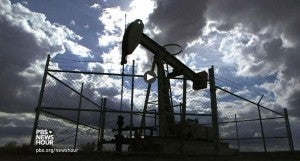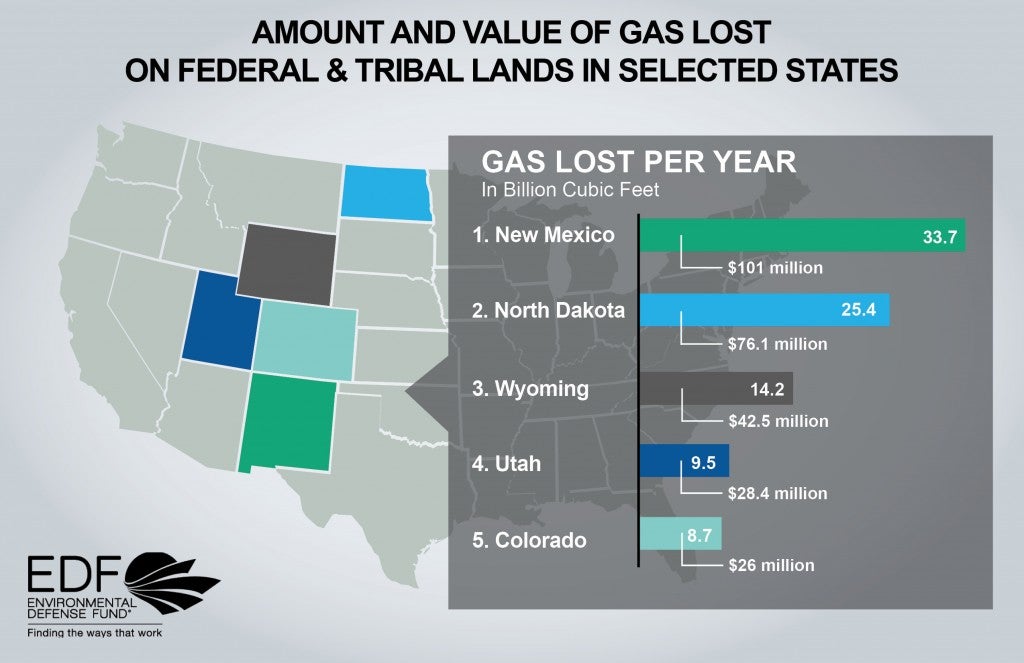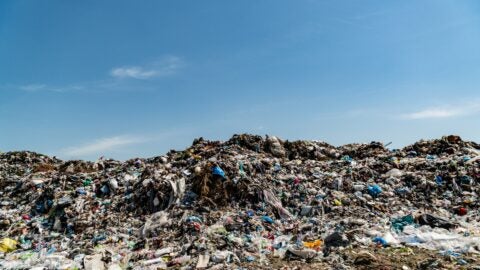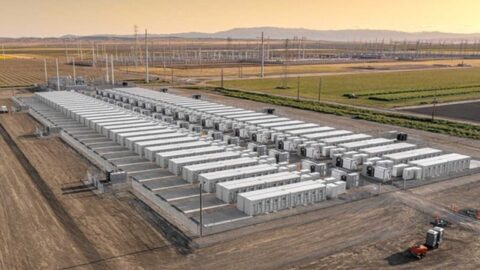
PBS Sheds Light on Oil and Gas Industry’s Methane Problem—and Solutions
*UPDATE: On Jan. 22 the Bureau of Land Management announced new rules to curb methane pollution on federal and tribal lands. Click here to show your support for protecting the West from oil & gas pollution.*
In case you missed it, PBS NewsHour recently took a close look at an issue EDF has been deeply involved in: oil and gas methane emissions.
PBS captured what many across the country have experienced for years – frustration with a significant waste and pollution problem. U.S. oil and gas drillers emit millions of tons of methane into the air every year. This pollution increases global warming and deteriorates air quality. As impacted rancher Don Schreiber in Gobernador, New Mexico told the reporter, the problem is “sobering.”
The climate and health impacts of unchecked methane pollution are very real, and so is another component: waste.
Methane essentially is natural gas. It’s a finite and valuable energy resource. Letting it go to waste through leaks, venting and flaring is no different than wasting money. These are real dollars we’re talking about. The market value of the gas that drillers waste each year is valued at over a billion dollars – yet it costs less than a penny per unit of gas to implement technologies and pollution controls that keep more gas in the pipeline rather than in the atmosphere. And once captured, this methane could generate tax and royalty revenue to offset impacts in the local communities that are feeling the brunt of new drilling.
The Environmental Protection Agency has proposed rules regulating emissions at new oil and gas facilities, a positive step in the right direction toward more responsible resource development. But rules on the thousands of wells already out there — so called “existing sources” — are needed as well. And now is the time to act. As reported by PBS, “natural gas production in the U.S. is on the upswing, and is expected to grow more than 50 percent over the next 25 years. That means emissions are likely to increase too, unless measures are taken to reduce them.”
The Bureau of Land Management which oversees oil and gas development on the Schreiber’s ranch and across hundreds of thousands of acres on the western U.S. is also drafting rules to reduce methane waste on federal and tribal lands. Strong action by BLM that includes sensible measures like quarterly leak inspections and addresses both new and existing wells on federal and tribal lands would go a long way toward solving this problem. Approximately 14 percent of U.S. gas production and eight percent of the oil production occurs on federal or tribal-owned lands – and a recent report found that gas wasted there is valued at more than $330 million dollars a year.
 And a new, home-grown industry is standing by with solutions to this methane waste problem. As profiled by PBS, companies like Albuquerque-based Quantigy are part of a growing economic sector — the businesses that develop, manufacture and implement the technologies that increase efficiency in the oil and gas industry and reduce waste. A recent report found 76 companies nationwide that manufacture, sell, and support the proven and cost effective methane control technologies that are available today to tackle this problem. The report details a robust and diverse industry, with over 500 different U.S. locations across 46 states. And more than half of the companies in this industry are small businesses. As sensible federal rules come into place, the methane mitigation industry is poised to grow and create more of these job across the country.
And a new, home-grown industry is standing by with solutions to this methane waste problem. As profiled by PBS, companies like Albuquerque-based Quantigy are part of a growing economic sector — the businesses that develop, manufacture and implement the technologies that increase efficiency in the oil and gas industry and reduce waste. A recent report found 76 companies nationwide that manufacture, sell, and support the proven and cost effective methane control technologies that are available today to tackle this problem. The report details a robust and diverse industry, with over 500 different U.S. locations across 46 states. And more than half of the companies in this industry are small businesses. As sensible federal rules come into place, the methane mitigation industry is poised to grow and create more of these job across the country.
As reported by PBS, we have the tools and technologies to cost-effectively reduce methane pollution – it’s time to put them to work. Families like the Schreibers deserve it.













